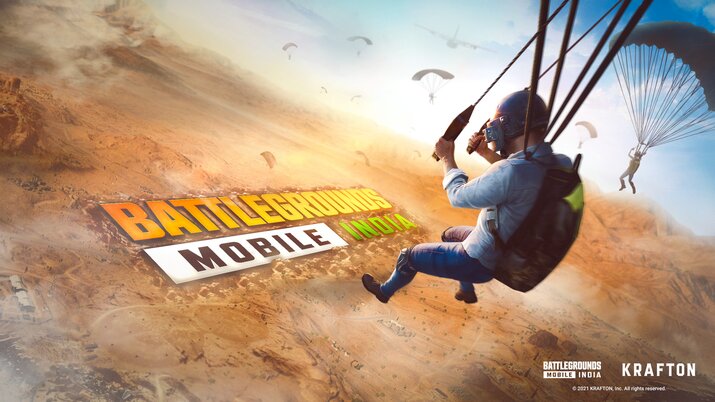Astro Bot Wins Game of the Year at Prestigious Gaming Awards: Complete List of Winners

Astro Bot Triumphs at Prestigious Gaming Awards: Full Winners Revealed
In a stunning upset at the annual Prestigious Gaming Awards, the beloved platformer Astro Bot: Rescue Mission clinched the coveted title of Game of the Year, overshadowing several anticipated competition titles from global giants in the gaming industry. This event, which celebrates the best in interactive entertainment, provided a stage for industry professionals and fervent gaming fans alike to acknowledge achievements in game design, storytelling, innovation, and overall player experience.
The Unexpected Victory
Astro Bot's victory was anything but anticipated. Developed by Asobi, a less heralded studio compared to industry titans like Rockstar Games, Naughty Dog, or Ubisoft, this VR-exclusive title showed how innovative gameplay, coupled with a heartwarming narrative, can resonate deeply with players around the globe. The game, centered around the charming little robot Astro, who embarks on a mission to rescue his lost crew members, captivated players with its inventive mechanics, VR immersion, and the emotional depth seldom seen in games of this genre.
A Breakdown of Astro Bot’s Game of the Year Victory
The selection for Game of the Year at this prestigious event is never straightforward, involving rounds of voting from a mix of industry professionals, critics, and the gaming community. Here's why Astro Bot managed to outshine the rest:
- Innovation in VR Gameplay: Astro Bot effectively demonstrated how virtual reality can transform gameplay experiences, offering intuitive controls, a 360-degree world to explore, and the sheer joy of physical interaction that translated the digital world into a palpable reality.
- Compelling Storytelling: Though seemingly simple, the narrative of Astro Bot tugged at the heartstrings. Its story of friendship, courage, and a community coming together against all odds sparked a refreshing wave of positivity in an often contested space.
- Visual Excellence: With characters that expressed a range of emotions and environments bursting with creativity, Astro Bot showcased that AAA visual quality need not come at the expense of performance or player comfort.
- Critic's Love: Review scores across platforms were exceptionally high, often citing the game's accessibility, depth, and replayability as top features.
Complete List of Winners
Alongside Astro Bot, many other games were celebrated in various categories, reflecting the diversity and creativity that the gaming industry enjoys today. Here is a detailed rundown:
Best Action Game:
Control, Remedy Entertainment’s exploration of the supernatural in a formally bureaucratic setting, took the trophy, continuing the studio's streak of combining action with storytelling flair.
Best Adventure Game:
The Outer Wilds, an indie gem that combines time loops, space exploration, and puzzle-solving in one captivating experience.
Best Narrative:
Disco Elysium, which redefined narrative-driven RPGs with its unique approach to character development and political-economic storytelling.
Best VR/AR:
Naturally, Astro Bot: Rescue Mission won here as well, further underscoring its dominance in the VR gaming scene.
Best Art Direction:
Death Stranding, Hideo Kojima's latest work, won for its audacious visual style and cinematic storytelling.
Best Audio Design:
Call of Duty: Modern Warfare, surprising critics with its war-like audio immersion and accurate weapon acoustics.
Most Innovative:
Supergiant's Hades, which brought rogue-like gameplay into the limelight with its fluid mechanics and Greek mythology-based narrative.
Best Mobile Game:
CALL OF DUTY: Mobile, which successfully translated the blockbuster FPS experience to smartphones with unexpected quality and depth.
Best Indie Game:
Untitled Goose Game, for its simple yet profound gameplay of chaotic joy and player-driven antics.
Best Multiplayer:
Tom Clancy's Rainbow Six Siege, for continuing to expand upon its tactical gameplay and community engagement.
Best Esports Game:
League of Legends, yet again, affirming its status as a titan in the esports arena with its global tournaments.
And many more...
Each winner highlighted distinct elements that make gaming a powerful medium for storytelling, community, and personal expression. The awards demonstrated a trend towards appreciating not only high-budget titles but also those from smaller studios, focusing on unique gameplay experiences and deep emotional connections.
The Future of Gaming
Astro Bot's win at the Prestigious Gaming Awards signals several trends for the gaming industry:
- VR Growth: Virtual reality continues to mature as a platform, with titles like Astro Bot showcasing the potential for immersive, intuitive gameplay.
- Narrative Depth: Games are increasingly recognized for their narrative layers, suggesting that players are seeking out experiences that can evoke deep emotional responses.
- Platform Agility: The recognition of both VR and mobile games indicates an industry adapting to the changing landscape of where and how games are played.
- Community and Social Impact: The growing significance of esports and community-driven games underscores gaming's role in social gatherings and online interactions.
Astro Bot's 'Game of the Year' victory is more than just an award; it's a milestone in gaming history that underscores the evolving tastes and expectations of players worldwide. As we move forward, it will be interesting to see how developers adapt to these emerging trends, potentially reshaping the industry in exciting and unpredictable ways.

De'Vondre Campbell Suspended for Last Three Games After Refusing to Play, 49ers Confirm
- 49ers' linebacker De'Vondre Campbell suspended for final three games after refusing to play. Team now adjusting lineup for playoffs.